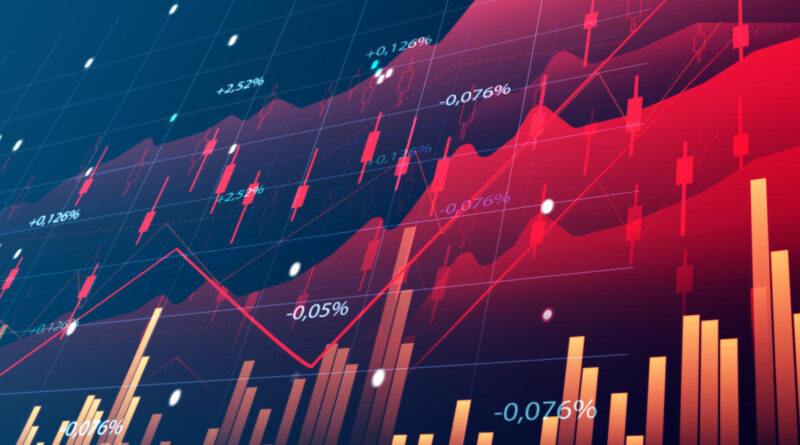Wall Street strategists warn the market volatility is far from over
A sense of calm has returned to Wall Street.
But it was not easy.
Revenge for those affected by fast and furious action: Growing risks of a recession and a sharp decline in the yen’s trade sent stocks lower on Monday. Fast forward to Friday, and the S&P 500 (^GSPC) ended the week with its best two-day gain of the year. The CBOE Volatility Index (^VIX), the stock market’s fear index, closed the week at 20.37, above its long-term mean. That’s a far cry from its high above 65 on Monday, a level often associated with panic and fear.
Yes, the recovery in the market is encouraging, but investors should not jump to the conclusion that we are in the clear. Instead, proceed with caution as top Wall Street experts tell me we are not out of the woods yet.
“The conflict is likely to continue until September or October, until the November election,” investment strategist Ed Yardeni told me on Yahoo Finance’s Morning Brief.
Yardeni says much of the uncertainty is due to the yen’s trading collapse. The trade – where investors borrow at near-zero interest rates in Japanese currency and invest the proceeds in high-yielding assets such as US stocks – is based on Japanese interest rates and value stable income.
If that doesn’t happen, the business can explode, which happened on Monday. The Bank of Japan’s rate hikes caused the Yen to appreciate, which led to the creation of discounts to cover those loans and fears of risk reduction.
Yardeni explained: “Most of what we saw was short-term. “A lot of this was based in Japan, and looking ahead, I think we’ll see the market continue to drop below July 16.”
Solita Marcelli of UBS points out that market volatility may remain “elevated” for some time, due to the limited fiscal deficit during the summer, further weakening of the yen trade, uncertainty in around Fed policy, and the upcoming presidential election.
Continuous volatility can also be driven by economic data documents.
Stuart Kaiser, Citi’s head of US equity trading strategy, told me that markets are “free” as investors look to inflation and jobs reports for confidence.
“Part of the status of [the selloff] it seems a little quieter, but the data part is still going,” Kaiser explained. “It’s going to take a little time for things to calm down and get people interested again.”
Thursday’s big rally following weaker-than-expected jobless claims underscores how bullish the market is about the risk of a recession.
Wells Fargo’s investment president, Darrell Cronk, described the jobless claims resulting from the merger as “unusual,” and further evidence that the market is “balancing on a hair.”
A DataTrek analysis found that when the VIX closes at 35.3 or higher, S&P 500 futures return an average of 2.4% over the next month and 6.9% over the next 3 months. By late Friday, the S&P 500 was up 3% from Monday.
“While we are hopeful of further gains over the next three weeks, history suggests keeping our expectations modest,” DataTrek co-founder Nicholas Colas wrote in a note to clients.
“The current market conditions are uncomfortable, to say the least. But … They are not giving a strong warning of a recession or condemning the current bull market to end prematurely. After a difficult week, we are comforted by that message,” Colas added.
Summary: Investors should be prepared for highs and lows but remain optimistic as the market moves through this volatile period. Additionally, research from David Kostin of Goldman Sachs found that investors tend to profit when they buy the S&P 500 after a 5% sell-off. Since 1980, the S&P has produced an average return of 6% in the trailing three months, with positive returns 84% of the time.
It’s hard to argue with data that goes back nearly 45 years.
Sean Smith I am an anchor at Yahoo Finance. Follow Smith on Twitter @SeanaNSmith. Tips for conventions, conferences, activist positions, or anything else? Email seanasmith@yahooinc.com.
Three times a week, Yahoo Finance Executive Editor Brian Sozzi fields full of insight discussions and chats with the biggest names in business and his markets Opening Bid podcast. Get more features from us video center. Look at yours popular streaming service. Or listen and subscribe to Apple Podcasts, Spotifyor wherever you find your favorite podcasts.
In Opening Bid below, veteran strategist Bill Blain reveals his biggest concerns in the market.
Click here for an in-depth analysis of the latest stock market news and events that drive stock prices
Read the latest financial and business news from Yahoo Finance
#Wall #Street #strategists #warn #market #volatility
